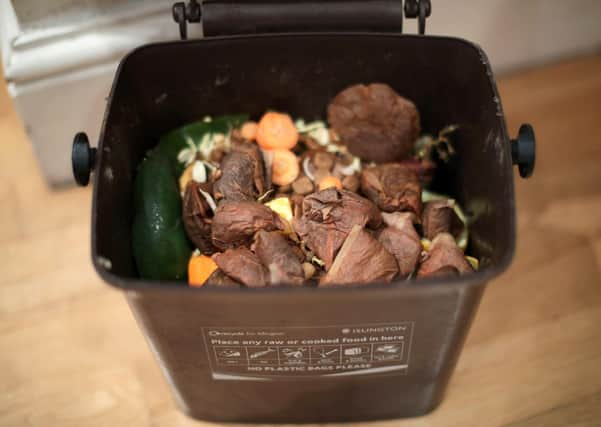Possible changes over food waste collection


East Riding of Yorkshire Council already collects food waste from more than 150,000 homes every fortnight, but it is collected together with garden waste, through its brown bin recycling scheme.
The Environment Bill outlines plans for food waste to be collected separately from all households by 2023, with a campaign group calling uneaten food in the country an “environmental nightmare of epic proportions”.
Advertisement
Hide AdAdvertisement
Hide AdThis means the East Riding of Yorkshire Council, along with around two-thirds of all English local authorities, may have to introduce a separate, designated food waste collection within three years.
An analysis of data from waste reduction charity Waste and Resources Action Programme (WRAP) shows that the average UK household wastes eight meals a week.
In the East Riding, residents have kitchen caddies and brown bins to put their food waste in for collection. Garden waste is also placed in the same brown bin.
Figures provided by 326 English local authorities to Wrap for 2018-2019 show the East Riding of Yorkshire Council is one of 12% to provide a system where people can dispose of leftovers alongside garden waste.
Advertisement
Hide AdAdvertisement
Hide AdAlmost half – 160 councils – do not provide any food waste collections at all and just under two-thirds do not offer separate collections.
No waste from East Riding goes to landfill. Waste that can’t be recycled is sent to a modern Energy from Waste facility, where it is used to generate electricity.
The Government says its preference is for separate collections rather than with garden waste.
The Local Government Association said it supported ambitions to reduce food waste, but spokesman David Renard said decisions over separate collections should be a local decision.
Advertisement
Hide AdAdvertisement
Hide AdHe added: “Councils would need to be fully funded to meet new costs from introducing weekly food waste collections, regardless of whether or not they have been providing a food waste service voluntarily.”
A spokesman for East Riding of Yorkshire Council said: “In Spring 2019, the Government started national consultation on the new strategy which the East Riding, like many local authorities, responded to.
“A second stage of this consultation is expected this year. Until the outcome of all the consultations is complete, we cannot say what and if any changes will be required.
“As an authority, we have the highest rate in England for recycling, reusing and composting household waste for the last three years.
Advertisement
Hide AdAdvertisement
Hide Ad“The collection system we have in place for food waste has been key to that success and this has been noted throughout the consultation process.
“The East Riding will continue to be involved within the consultation process and liaison with national bodies who represent local authorities to work towards the best interest of our authority and its residents.”